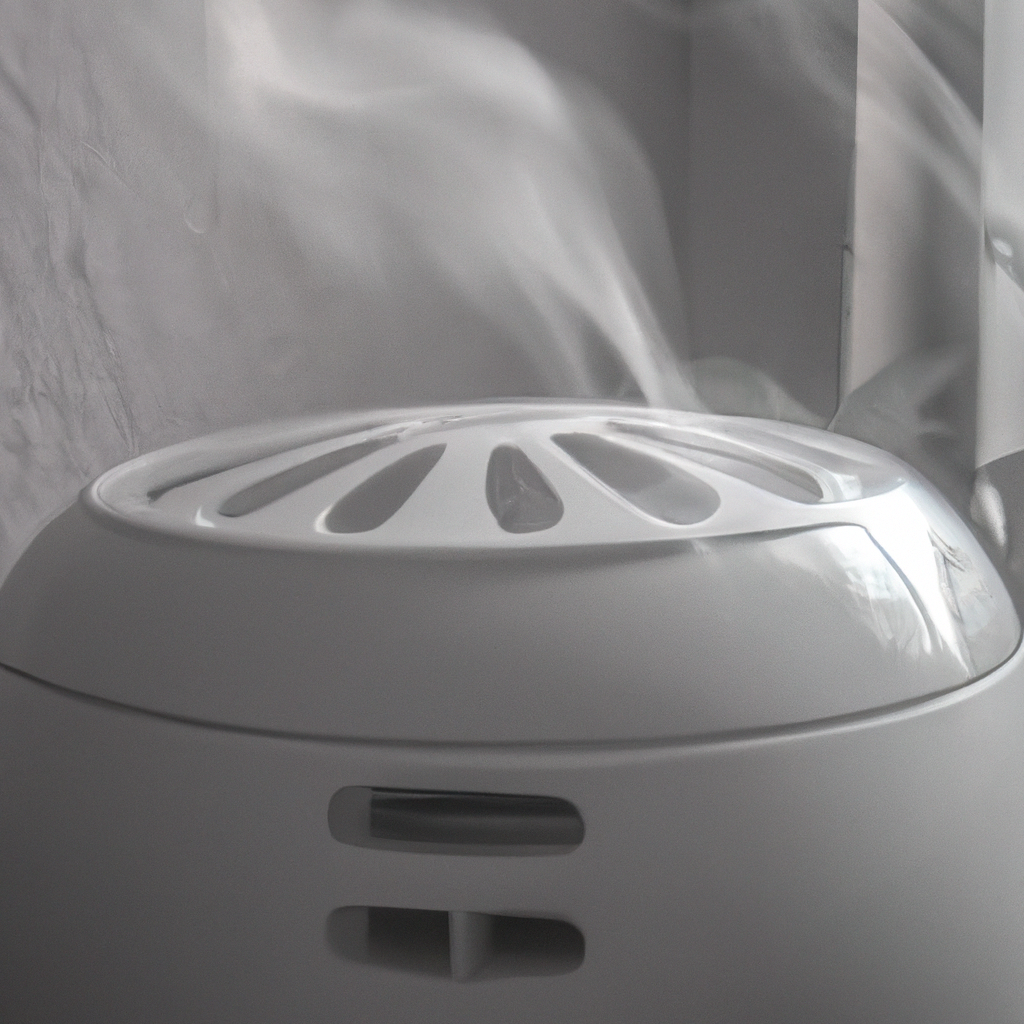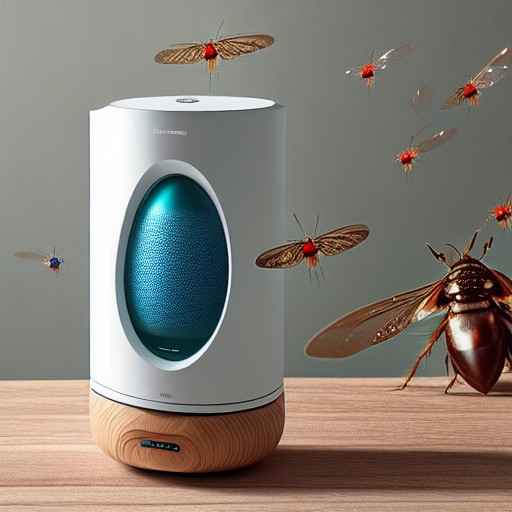Humidifiers are popular devices for maintaining healthy air in the home, however, some people worry that introducing humid air into the environment could attract bugs. This article examines whether having a humidifier increases the risk of bringing bugs into the home.
No, a humidifier will typically not attract bugs on its own. However, it is important to keep the humidifier clean and free of mold or mildew that could be a food source for insects. Additionally, it is important to vacuum and dust around the humidifier to minimize the chances of attracting any insects.
The most common concerns about having a humidifier involve potential health risks. Humidity can be beneficial to one’s health, as it helps maintain proper moisture levels in the air and aids in breathing and skin health.
However, high humidity levels can also create an ideal environment for certain pests to thrive in. This article explores this issue in more detail to help readers make an informed decision about humidifiers and their impact on pest infestations.
Humidifiers are often seen as a way to improve air quality and overall comfort in the home, but they also come with potential risks.
By exploring these risks in depth, readers will gain a better understanding of how to use a humidifier safely and effectively without attracting unwanted guests.
This article offers a comprehensive look at this important topic, allowing readers to make an educated decision about their own home environment.
Benefits Of Humidifiers
Humidifiers are a popular home appliance used to improve air quality in a room or area.
They are especially beneficial for people suffering from allergies, asthma, and other respiratory issues.
Humidifiers work by increasing the moisture content of the air through evaporating water into the atmosphere.
This can help ease symptoms such as dry skin and nasal congestion, as well as reduce static electricity in the home.
By adding moisture to the air, humidifiers also help reduce dust mites, which can be a major source of allergens in the home.
Besides providing relief from allergy-related conditions, humidifiers also provide numerous other health benefits, including improved sleep quality and reduced snoring.
Additionally, they can even help protect furniture and wooden floors since higher humidity levels prevent cracking and shrinking.
With all these benefits it is no wonder why so many people choose to use humidifiers in their homes.

However, some types of insects may be attracted to moisture created by humidifiers. In the next section we will consider what types of insects this may include.
Types Of Insects Attracted To Moisture
The presence of moisture can be attributed to a variety of causes, however it is the particular type of insect that is drawn to it that must be considered. The most common types of bugs attracted to humid environments are gnats, fruit flies, and moths.
Gnats are small flies that feed on decaying matter and thrive in areas with high humidity. Fruit flies are attracted to the sweet scent of fruits and vegetables, often congregating around humidifiers.
Moths are nocturnal insects that seek out dark, damp spaces which can include humidifiers. All three types of insects have an affinity for moisture and can become a nuisance if left unchecked.
Humidifiers create an ideal environment for these pests to breed and multiply without any natural predators or deterrents present. Therefore, it is important to take proactive steps in order to keep any potential infestations from occurring.
Understanding the type of insects attracted by moisture is the first step in preventing bugs from taking up residence in your home or office humidifier.
How To Prevent Bugs In A Humidifier
Although humidity can be beneficial to many species of insects, humidifiers are not a necessary source of moisture. To prevent bugs from entering or gathering around the humidifier, there are several steps that should be taken.
First, keeping the area around the unit clean and free of debris is essential. Also, it is recommended to empty and refill the water tank with fresh water each day to reduce the risk of mold or bacteria growth in standing water.
Additionally, regularly cleaning and changing out any filters can also help prevent insect infestations.
To further reduce the likelihood of bug infestations, it is important to keep the humidity level low.
Monitoring humidity levels with a hygrometer will help ensure proper maintenance of the humidifier and reduce potential insect activity in the area.
Finally, sealing off any cracks or openings where insects may enter will also help discourage them from coming near or entering your home.
With these simple steps in place, you can enjoy all the benefits of a humidifier without worrying about attracting pests.
Cleaning And Maintenance Tips
Cleaning and maintaining a humidifier is a relatively simple process.
To start, make sure to unplug the unit before cleaning it.
Using a damp cloth, wipe down the outside of the device to remove dust and dirt build up.
Additionally, use an all-purpose cleaner on any plastic components as well as any interior surfaces.
When done, rinse with lukewarm water and dry completely before plugging back in.
Furthermore, inspect the filter at least once per month; if it is dirty or clogged, clean or replace accordingly.
To further reduce the possibility of attracting bugs, empty and refill with fresh water every two to three days. Additionally, regularly check for signs of mold growth around the base of the unit since this can attract pests over time.
If found, scrub away using a mild detergent and rinse thoroughly with warm water. Finally, keep the area around your humidifier clean and free from debris to minimize bug attraction even further.
Conclusion
Humidifiers can be beneficial and help create a comfortable home environment.
Unfortunately, they can also attract insects if proper maintenance is not taken.
Insects that are attracted to moisture include mites, fleas, and cockroaches.
There are steps that can be taken to prevent bugs in a humidifier, such as cleaning and drying the unit regularly, and using an air filter or humidistat to control the humidity level.
Additionally, emptying the water tank after each use, and replacing the filter regularly can also help protect against bug infestations.
Maintaining a clean and properly functioning humidifier is important for preventing bug infestations.
For example, one should avoid adding essential oils or fragrances to the water tank of the humidifier because these products can cause bacteria growth which can attract insects.
Regularly cleaning and changing filters helps reduce dust build-up which often attracts bugs.
Following these simple tips will help ensure a bug-free environment when using a humidifier.
Overall, although humidifiers provide numerous benefits for creating an ideal home environment, it is important to take proper maintenance precautions in order to prevent any unwanted insect visitors. By following some basic steps such as cleaning regularly and using an air filter or humidistat to monitor humidity levels, one can enjoy all of the benefits of using a humidifier without having to worry about bug infestations.




